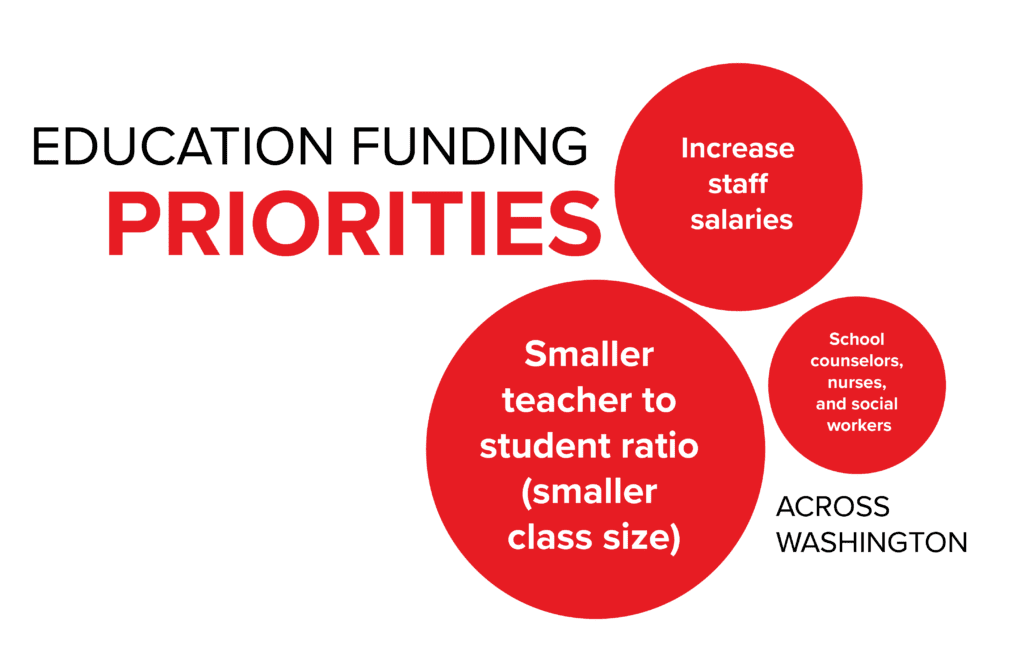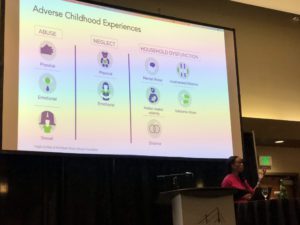Legislative Priority: Supportive and Safe Schools
By League of Education Voters Policy Team
Every year, we must ask: how are our students experiencing their education? The ongoing impacts of the pandemic, alongside the persisting traumas that accompany racism and injustice in our state, continue to affect students’ abilities to learn and feel like a meaningful part of their community.
School should be a place where every child first and foremost feels safe, included, and that their identities and abilities are valued, supported, and affirmed. When our students are well and truly experience their education in this way, then they are better set up for success in school, in work, and in life.
League of Education Voters is committed to creating the right system conditions to make big educational changes students will experience at the school level.
Together, we must do this by urgently addressing the systemic and structural barriers in Washington schools that further inequity among students and limit our ability to get every child what they need, when they need it. In particular, we must focus on community-driven solutions to support students and families who have been historically and systemically underserved – including students of color, students living in poverty, students receiving special education services and students with disabilities, students learning English, students who identify as LGBTQ+, students experiencing homelessness, and students impacted by trauma.
Together, we can work to create the conditions for meaningful change and build better systems for the future of Washington students and families.
WHY STUDENT SUPPORTS AND SCHOOL CLIMATE ARE IMPORTANT
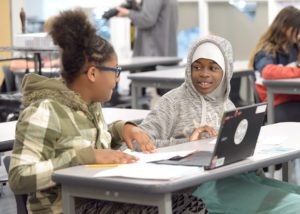
Students learn most effectively when their school feels safe, inclusive, supportive, and respectful (1). Creating positive school climates and providing student supports can mitigate the impact of trauma (2), mental health needs (3), and other non-academic factors that affect a student’s ability to engage in learning (4). It is instrumental in closing opportunity and achievement gaps in our system and improving student outcomes.
The creation of supportive and safe schools includes strategies such as Social-Emotional Learning (SEL), tiered systems of support, partnerships with families, partnerships with community-based organizations, and providing access to mental health services, among others. Between 50-80% of students in need of mental health services do not have access (5), and schools are likely the first point of access for many students that do seek services (6,7). School climate reform strategies have been shown to decrease school violence and bullying, increase academic achievement, and improve the school experience for students, staff, and families (8). The implementation of universal SEL programs have also been shown to result in significant academic gains (9,10) as well as a robust return on investment of $11 for every $1 spent (11).
Moreover, the traumas that students have undergone as a result of the COVID-19 pandemic make the need for schoolwide mental health and SEL support even more urgent (12), especially among communities of color who are disproportionately experiencing the impacts of COVID-19, as well as the added traumas of racism and discrimination (13). Read More


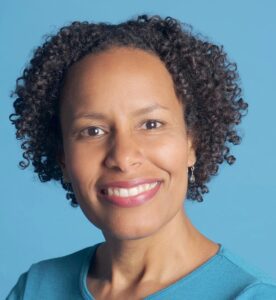 In our
In our 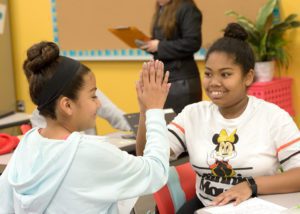
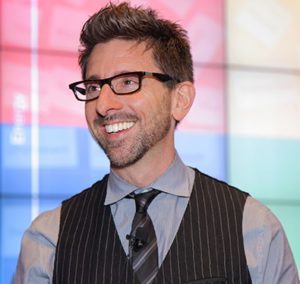 In our podcast, we interview policymakers, partners, and thought leaders to spotlight education policies, research, and practices so that together we can create a brighter future for every Washington student.
In our podcast, we interview policymakers, partners, and thought leaders to spotlight education policies, research, and practices so that together we can create a brighter future for every Washington student. Students learn most effectively when their school feels safe, inclusive, supportive, and respectful (1). Creating positive school climates and providing student supports can mitigate the impact of trauma (2), mental health needs (3), and other non-academic factors that affect a student’s ability to engage in learning (4). It is instrumental in closing opportunity and achievement gaps in our system and improving student outcomes.
Students learn most effectively when their school feels safe, inclusive, supportive, and respectful (1). Creating positive school climates and providing student supports can mitigate the impact of trauma (2), mental health needs (3), and other non-academic factors that affect a student’s ability to engage in learning (4). It is instrumental in closing opportunity and achievement gaps in our system and improving student outcomes.